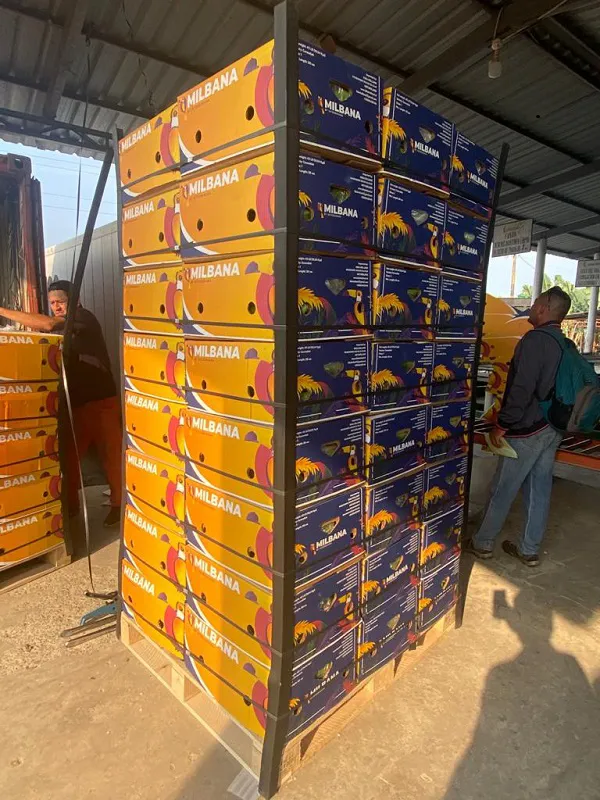Bananas production and transport prices have risen sharply. And it looks like this will continue for the time being. Why have these costs increased, and what does this mean for consumers?

Producers and exporters in Ecuador, Colombia, Guatemala, Honduras, Dominican Republic, and Costa Rica - good for 60% of the world's banana production - are concerned. Production costs are skyrocketing, while this year's banana prices show the biggest drop in a decade.
According to Reefertrends, it is €10 lower per 18.5 kg. This, they say, negatively affects the banana sector. A sector that in recent years has already been facing all kinds of unforeseen hurdles. Think of the global pandemic, where additional costs were incurred to protect workers' health and product safety.
"Surely it can't be that producing/exporting countries have to bear all these external costs alone?" reads their statement. "We've always taken good care of our plantations and made sacrifices. We've taken responsibility, so bananas can reach all corners of the earth. However, for the banana sector's survival and future, it's crucial that the entire chain becomes involved."
Raw materials shortages play a part
"These are legitimate concerns," says Milovan Milosevic of Kika Holland. This Dutch import company trades fresh fruit and vegetables. These go primarily to the ex-Yugoslavian countries of Slovenia, Croatia, Bosnia and Herzegovina, Montenegro, Serbia, and Macedonia. "With 65% of sales, bananas are our main product. We import them directly, mostly from Ecuador and Costa Rica, via the ports of Rotterdam, in the Netherlands, and Bar in Montenegro."
He has seen production and logistical costs climb sharply recently. These increases, Milovan says, start in the countries of origin. "Things like pesticides and fertilizers have become more expensive, as have packaging materials. Cardboard and plastic prices, alone, have risen by more than 40%. That's due to the hiked global raw material prices."

"Logistics costs have also climbed and climbed. Sea freight costs by at least 60%. This is always most expensive in the first quarter, during the peak season. That's when consumption is higher. Rates usually fall in the summer. But this year they were actually higher than in the first quarter. Shipping companies are now milking the situation and are using monthly instead of quarterly rates."
That applies not only to sea freight but per container line too. Milovan says conventional shipping prices are also high. Because of the switch to container liners, many conventional boats have been scrapped. "That, combined with the refer container shortage, means current shipping costs are as high or even higher than container transport."
What is causing this rise in logistics costs? "It's a combination of factors," explains Milosevic. "It started with the delays in Chinese ports at the beginning of last year. And the delays in US West Coast ports. Fuel prices, too, have gone up, and the global demand for goods has increased. All that following a year of low demand due to the global pandemic. Research shows that this situation will continue until the end of next year."
Supermarket price increases are unavoidable
Will conditions on the banana market ultimately affect consumers? Milovan cannot say for sure. He foresees prices going up in the winter. "It's unavoidable that these price increases will have an impact. But rising production costs don't mean banana prices will automatically become much higher than average."
"An increase is, of course, on the cards. In a few months, the annual contracts with the supermarkets will expire. Importers are currently under pressure to pass on the increased costs, and that's quite challenging. It's impossible to say what it will be like next summer. I, however, expect bananas to become pricier than average this winter," Milovan concludes.
Milovan Milosevic
Kika Holland
Tel/Fax. +31(0)485313810
Mobile +31(0)650435140
info@kikaholland.com
www.kikaholland.nl
